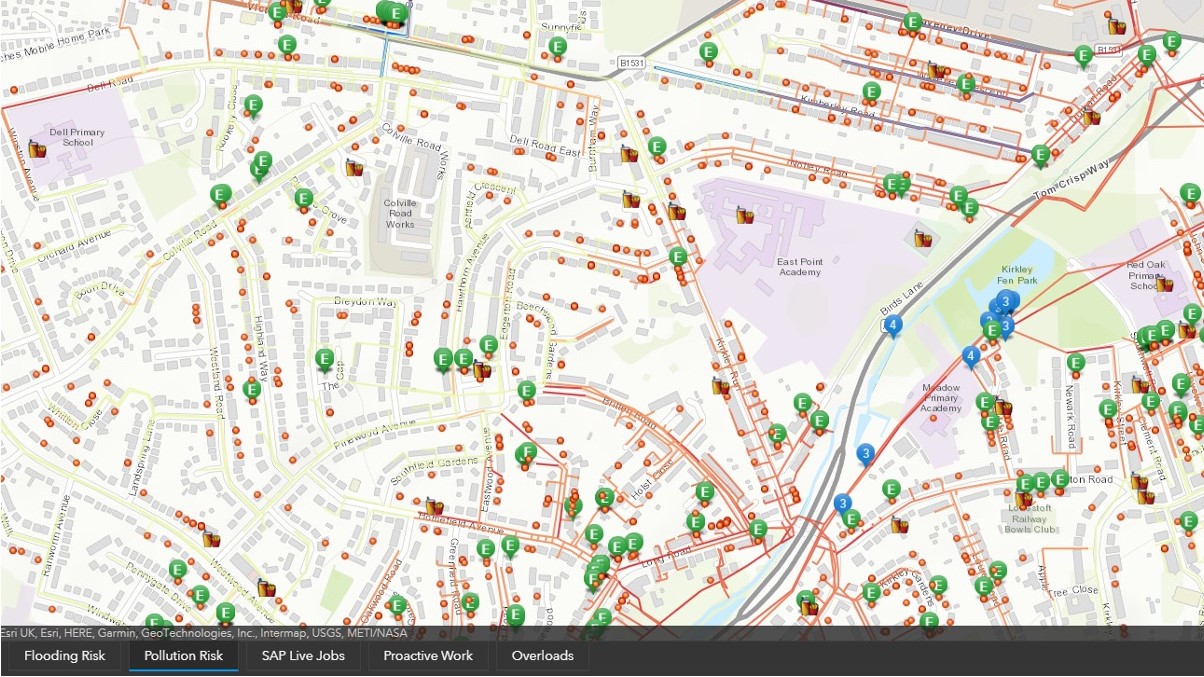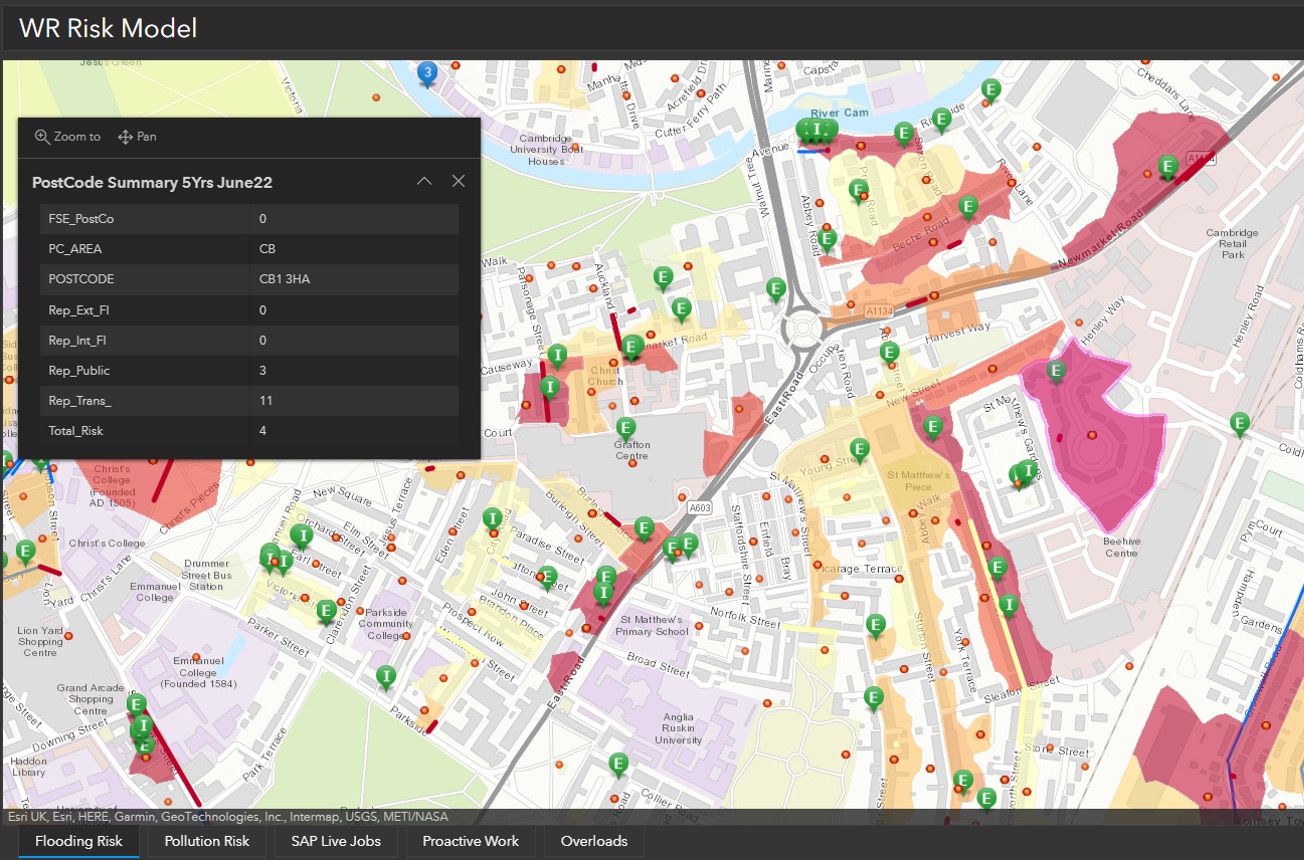Anglian Water has created a real-time picture of sewer risk, which is helping drive proactive interventions to reduce sewer blockages, flooding and pollution incidents. The new mapping system reveals hotspots to prioritise where work is needed across the network to improve network performance and protect the environment.
Developed using geospatial technology from Esri UK, benefits of the new risk tool in its first six months include a 51% reduction in blockages, 112km of sewers cleaned and 8 tonnes of debris removed. A reduction in customer service issues relating to blockages has resulted in more than £1m of savings. There have also been less engineer callouts which saves time and reduces carbon emissions from unnecessary travel.
By mapping scores applied to sewers, which consider multiple risk factors including their location, material, size, proximity to the water course and historic pollutions, the resulting dashboard shows the riskiest locations which helps inform targeted interventions. To date, the system has been used to find and clear over 1,000 blockages and discover more than 1,700 structural defects, including broken pipes and tree root intrusions.
Anglian Water is the largest water and water recycling company in England and Wales by geographic area, managing 77,000km of sewers and serving around 7 million people. The new geospatial tool was developed to replace reactive and unconnected processes and systems and support better decision-making. Designed to be used by all staff plus external contractors, more people across the organisation are now using geospatial software for the first time, both in the office and out in the field. Since the risk tool was introduced, geospatial user numbers have almost doubled.
“Esri GIS has allowed us to develop a holistic view of risk in real time and shift our business model from being reactive to proactive. This new way of working helps prioritise work and investment across the network,” explained Michael Wingell, Geospatial Strategy Manager, Anglian Water. “Every blockage cleared means a reduction in the number of flooding or pollution incidents, saving both time and money and having less environmental impact.”
The risk tool is continuously learning and improving, supporting additional streams of work, including the targeting of fast-food outlets and Anglian Water’s ‘Keep it Clear’ domestic campaign to reduce blockages. Areas which are at high risk of blockages are identified so particular food outlets or neighbourhoods can be approached and disposal methods for fats, oils and greases discussed. Network performance post intervention is then tracked in the risk tool to monitor each programme’s impact. Using the tool to work with fast food outlets has so far prevented an additional 191 blockages.
Ongoing plans include integrating flow sensor data from across the network and using the risk tool to share data and collaborate with third parties, including the Environment Agency and local authorities, when an extreme weather event occurs, for example, to help respond to flooding events.
Victoria Wilkinson, Strategy Manager, Anglian Water, said: “By embedding digital tools into the decision-making process within our business we can drive change and improve performance.”




